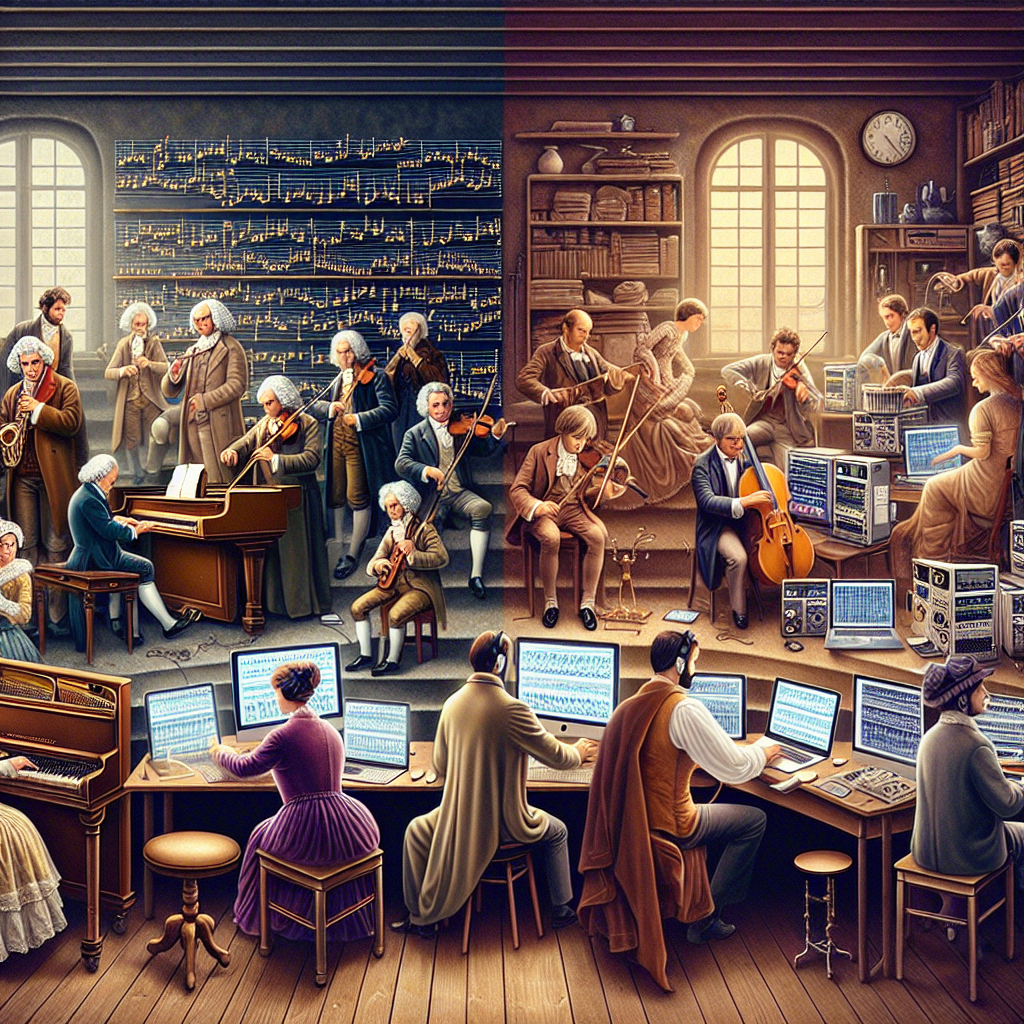The evolution of music is as ancient as humanity itself, shaped by the interplay of culture, technology, and inventiveness. Currently, we find ourselves in a remarkable phase of this journey: the emergence of artificial intelligence (AI) in music creation and production. From the classical compositions of Beethoven to computer-generated harmonies, AI is fundamentally transforming the way we produce and experience music.
Music’s Roots: A Classical Viewpoint
The history of music spans millennia, with various cultural influences coalescing to form unique genres and styles. Ludwig van Beethoven, a pivotal figure in music history, embodied the spirit of change during the late 18th and early 19th centuries. His works defied conventional forms and expressed deep emotions, challenging the boundaries of musical expression. Beethoven’s legacy has inspired countless artists to push the envelope of creativity through new technologies and concepts.
The Digital Age: Merging Tradition with Technology
The onset of the digital era in the late 20th century revolutionized how music is composed, recorded, and shared. Technological advancements like synthesizers and digital audio workstations (DAWs) have become essential tools for modern musicians. This democratization of music production has enabled a broader audience to compose and disseminate their creations.
As technology progressed, artists began to explore algorithms and programming, developing software to assist in their creative processes. Early applications of AI in music consisted of rule-based frameworks producing simple melodies and harmonies, yet the true transformation was still to unfold.
AI in the Spotlight: The Rise of Machine Learning
Machine learning, a branch of AI, has reshaped the field of music composition. By analyzing extensive libraries of music, AI learns to recognize patterns, styles, and structures, allowing it to generate new works. Algorithms are now able to create music that emulates the styles of renowned composers, fuses genres, or even produces entirely original compositions.
A major breakthrough in AI-driven music creation is the development of generative adversarial networks (GANs). These systems involve two neural networks working together: one generates music while the other critiques it, enhancing the output through continuous learning. This approach has significantly improved the quality and creativity of AI-generated music.
Prominent Examples of AI in Music
Human-AI Partnership
Instead of perceiving AI as a replacement for human musicians, the trend is shifting towards collaborative efforts. Artists are increasingly incorporating AI tools into their creative processes, using them for brainstorming, generating initial ideas, or finalizing compositions. This collaboration highlights the unique strengths of human imagination and machine efficiency, merging intuition with analytical insights.
Musicians such as Taryn Southern have embraced AI technology, employing it to compose songs and enhance their artistic endeavors. Such partnerships expand the possibilities of creativity, paving the way for a new age of musical exploration.
The Future: Opportunities and Challenges
While AI opens up exciting avenues for innovation, it also raises challenges. Issues of authorship, copyright, and the authenticity of AI-generated music are subjects of ongoing debate. As AI’s ability to produce high-quality music advances, the distinction between human creativity and machine-generated content becomes increasingly ambiguous.
Ethical questions also arise. It is vital to ensure that AI technologies are developed responsibly, without perpetuating biases found in their training data, to foster a future where technology enhances human creativity rather than suppresses it.
Conclusion: Harmonizing with Innovation
The advancement of AI in music mirrors a broader trend in the arts: the blend of tradition and innovation. From Beethoven’s revolutionary symphonies to cutting-edge algorithms crafting captivating auditory experiences, the nature of music continues to evolve. As we explore this new realm, the collaboration between human musicians and AI will likely unlock unprecedented creative territories, enriching our musical experiences for generations to come.
In this symphony of advancement, technology stands as both a tool and a collaborator in discovering new sounds, ensuring that the music of tomorrow resonates with the legacies of the past.

